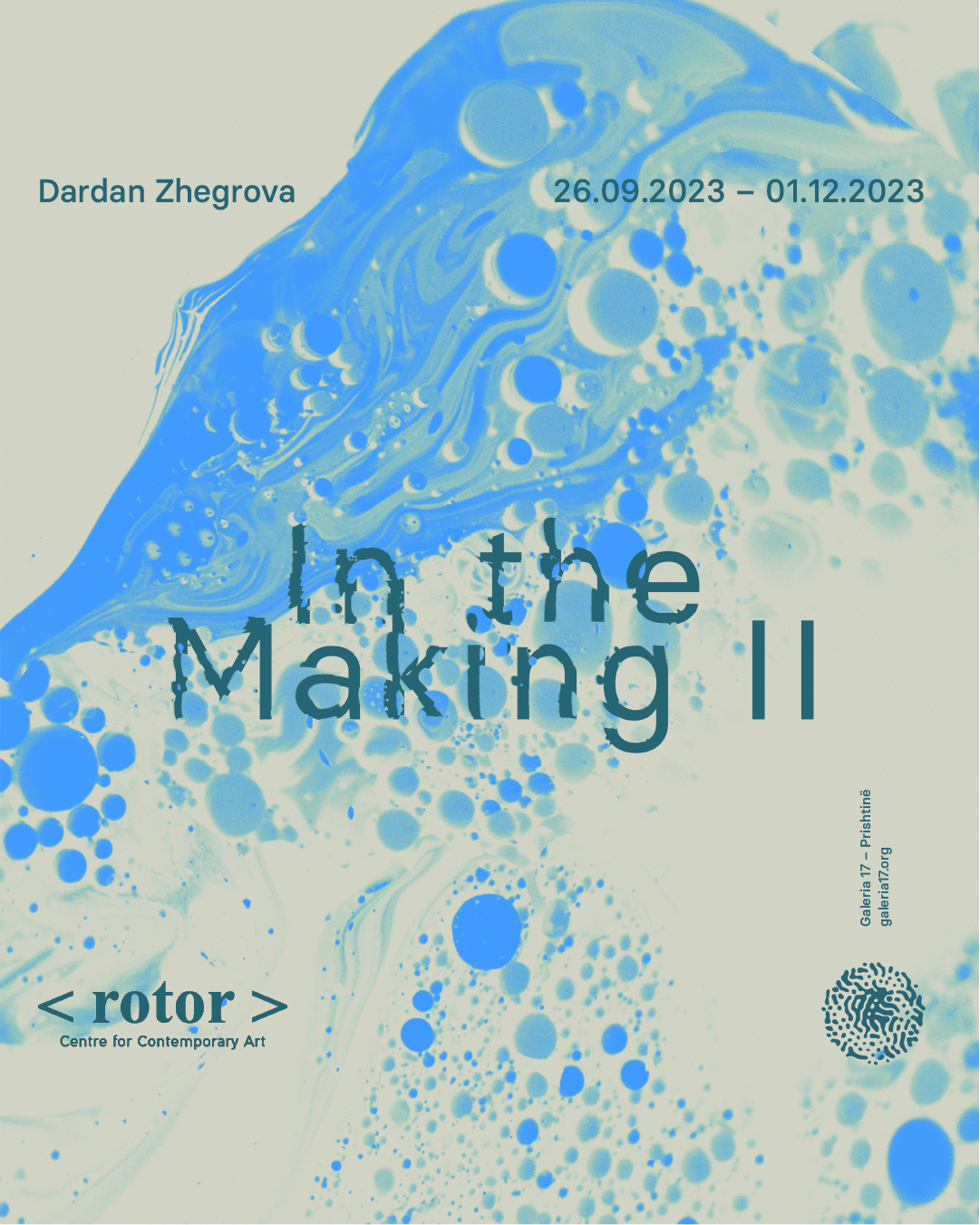Artist: Dardan Zhegrova
17.10.2023 – 01.12.2023
Opening: 17.10.2023, 19:00h
“Art made by the people and for the people as a joy for the maker and the user,” (…) William Morris
It is very interesting after a century and a half to return to the “Arts and Crafts” reform movement and see how relevant it is even today. To understand that during the second industrial revolution – when the century of trade and consumption was rushing – the “Arts and Crafts” movement called for the appreciation of the craftsmanship of creators; it echoed the authenticity, simplicity and beauty of the material, the importance of nature as inspiration and utility as the end. From this we learn that social development surprisingly, in every social, political and economic threat, returns to its basic, intuitive and nature-dependent formation. Even now, at a time when the climate crisis enjoys the center of discussion, and where welfare capitalism has taken hold, the artisan is being seen as a means of rebellion and communication. Perhaps, this is because historically, craftmanship is known as a means of survival, self-empowerment, happiness at work and ultimately a means of resistance against oppression. Since the 50s – recently with even greater intensity – DIY has also strengthened the appreciation of self-craftsmanship, echoed the authenticity, simplicity and beauty of the material, low cost and utility as a result. Therefore, in times of critical reflection, returning to the “old school” of creation and production, not only comes naturally but is an act of survival, communication and interaction. Referring to the climate crisis, we must admit that we all have an active role, without exception. Unfortunately, calls for change from central levels often remain mere rhetoric, while concrete actions at all levels have become urgent. Therefore, small initiatives, peripheral communities and various groups are working towards encouraging society for participation and change. The creative industries are also participants in the climate crisis, from many points of view. One of the industries, which Queer Ecology – In the Making II refers to this time, is that of textiles – as one of the most polluting industries on the planet. Not only does it produce tons of waste, which ends up in landfills, but what’s more, their products generate tons of microplastics, which harm underwater life as well. It is completely inexcusable how man acts against the biodiversity on which he depends; It creates, raises and exalts industries, which not only oppose it, but act continuously, undermining the network of ecosystems today. Therefore, we are all invited together to interact with our working environment, calling ourselves first of all to reflect and act on the decolonization of the understanding of nature and the natural world; echoing the differences and embracing the multi-species flourishing without compromising it or depriving a single species of its co-existence on planet Earth. Therefore, Galeria 17, transformed into a joyful working environment, has welcomed children aged 6-13, so that together with the artist Dardan Zhegrova, we can contribute a little to this sensitive environmental and social issue, through an open working, educational and self-awareness process. Personal textile scraps of the participating children, have been reused through the artisan, to give life to the puppets – created by their imagination – which all together will tell a tale that talks about the coexistence between similarities and differences. Another show, told by children this time – a lesson for adults on how to see the world on planet Earth. Thus, they invite us to interact with the world around us by acknowledging co-presence, an essential issue of coexistence and interaction in the network of ecosystems today. – Fitore Isufi Shukriu
Dardan Zhegrova in collaboration with the children / Aksa Hashani, Alea Limani, Alea Piliqi, Alina Ajnuni, Alp Gashi, Alp Mehmeti, Amra Blakaj, Ana Lumi, Ana Shehu, Anika Jerliu, Anisa Neziri, Arina Kllokoqi, Artina Latifi, Bora Zeqiraj, Borena Hoxha, Bruno Nasha, Buna Hasanpapaj, Dafina Gashi, Daris Durguti, Diell Rexha, Diona Haziri, Drilon Hyseni, Dua Sejdiu, Elena Kamberi, Elisa Shulemaja, Ema Basha, Engjëllusha Kadriu, Era Ahmetaj, Era Cej, Era Lokaj, Erda Burani, Erika Dili, Erina Sejdiu, Erina Zymeri, Erza Binaj, Esila Gashi,Esra Isufi, Fron Krasniqi, Gegë Kaçamaku, Hana Bardhaj, Hana Nekoviqi, Hanisa Pllana, Harmoni Osmani, Harpa Nimani, Hera Krasniqi,Iris Velija, Juna Buleshkaj, Kiara Pajaziti, Kron Begolli, Kron Krasniqi, Leart Matoshi, Lir Bislimi, Lisa Dika, Lisa Saqipi, Luana Tahiri, Margo Salihu, Marta Kasumi, Matin Maloku, Medina Peci, Mia Bajrami, Mira Hoxha, Morea Namani, Narta Krasniqi, Nil Lubishtani, Nina Mustafa, Noah Hoti, Noar Sejdiu, Olsa Gallopeni, Puhiza Miftari, Renea Sopian, Riga Rashidi, Rigon Bytyqi, Rineta Mekaj, Ro Shukriu, Roi Blakaj, Rrita Canolli, Rron Dobroshi, Teo Zeqiraj, Tiar Sheqiri, Tiara Beshiri, Tiara Kolgeci, Tuana Bajrami, Tuana Rexhepi, Una Kacandolli, Viktoria Ibrahimi, Vjosa Sopjani, Yllka Hajdari, Zoé Luci Jouffre.


